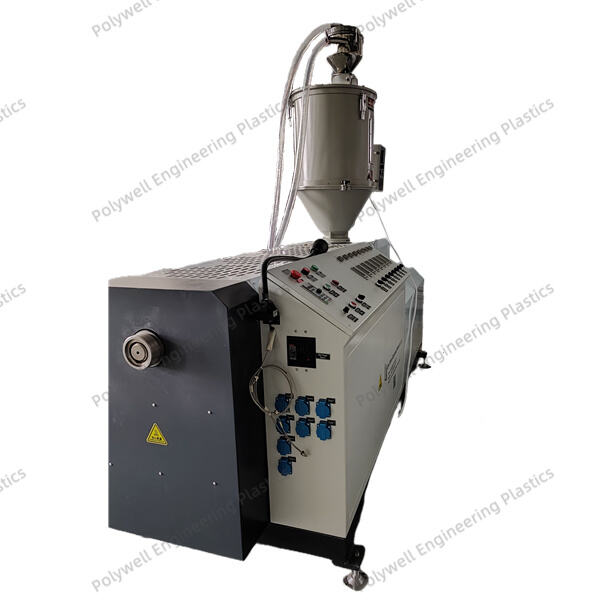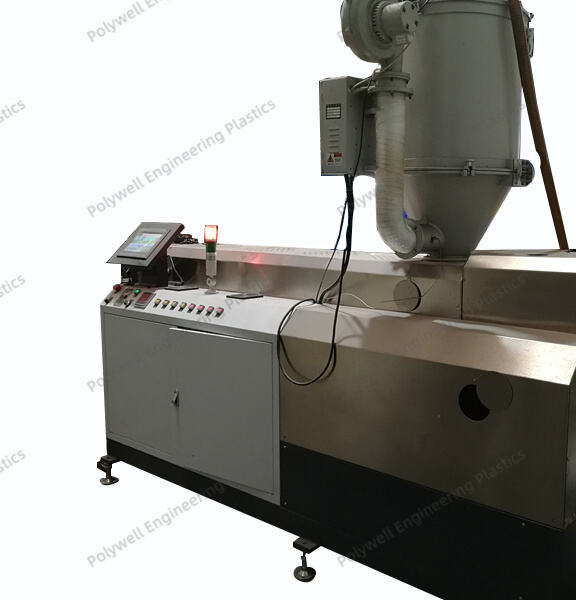Recent advancements in extrusion molds for thermal break profiles have made significant strides due to the development of advanced materials, such as high-strength steel and aluminum alloys. These materials allow for the creation of more durable molds that can withstand the demanding conditions of extrusion processes. As a result, manufacturers can produce profiles that are not only more robust but also capable of enhancing thermal performance and energy efficiency.
The integration of advanced software for CAD and simulation tools has further revolutionized the design process of extrusion molds. These tools facilitate precise modeling and analysis, enabling designers to create complex profiles that were previously challenging to fabricate. With the aid of these technologies, manufacturers can optimize mold designs for improved performance in terms of thermal insulation and structural integrity. These advancements in extrusion molds pave the way for enhanced thermal management solutions, contributing to more sustainable and energy-efficient buildings.
Polyamide insulation extrusion machines play a crucial role in advancing thermal break technology through their superior insulation properties. These machines produce polyamide profiles that are integral to reducing heat transfer in aluminum windows and doors, thus enhancing energy efficiency. Recent models of these machines exhibit notable improvements, focusing on high throughput and energy-efficient production. Incorporating state-of-the-art technology, these modern extrusion machines ensure precise control over material processing, ultimately contributing to the production of high-quality insulation products.

Understanding the technical specifications of a polyamide insulation extrusion machine is crucial for optimizing its efficacy. Key specifications include the machine's barrel length, diameter, and the number of heating zones, all of which are essential for maintaining consistent melt temperatures and extrusion speeds. Efficient melt temperature management and optimal extrusion speeds ensure the machine operates smoothly, minimizing energy consumption while maximizing productivity. These techniques not only enhance the extrusion process but also contribute significantly to the overall quality of the thermal break profiles produced.

Polyamide insulation components significantly enhance the thermal efficiency of aluminum profiles, particularly in commercial infrastructures. These materials are frequently used in windows and doors to prevent temperature transfer, thereby reducing energy consumption. Case studies across various commercial buildings have demonstrated the effectiveness of polyamide profiles in maintaining thermal regulation. The integration of such insulation solutions not only aids in energy conservation but also contributes to sustainability and cost efficiency in building management. By leveraging the benefits of polyamide insulation, businesses can achieve considerable energy savings and reduced environmental impact.
The PA66 nylon extrusion profile extruder boasts several advanced features making it indispensable for thermal break applications. PA66 nylon material itself is celebrated for its high melting point and exemplary resistance to wear, providing a durable solution for extrusion processes. The machine integrates innovative cooling systems that efficiently dissipate heat, ensuring product integrity. Enhanced screw geometries further augment its operation by improving the melt uniformity and reducing processing times. These features collectively optimize the extrusion process, supporting the creation of high-quality thermal barriers.

Modern PA66 extrusion machines are designed with energy efficiency as a priority, thereby significantly reducing energy consumption while maintaining high product quality. The incorporation of precision-engineered components allows for minimal energy wastage, making them both environmentally and economically viable. Key performance metrics include an impressive output rate and minimal material wastage, which enhances the overall cost-effectiveness of the machinery. These metrics collectively contribute to more sustainable manufacturing processes, showcasing the balance between efficiency and performance.
PA66 nylon extrusion plays a vital role in the manufacturing of thermal barrier strips, which are crucial for improving energy efficiency in buildings. These strips effectively minimize heat transfer, contributing to reduced energy costs and improved building sustainability. Industry acceptance has been bolstered by the proven efficiency benefits, with statistics often highlighting significant energy savings. This acceptance underscores the value that PA66 nylon extrusion brings to modern construction and architectural practices, bolstering its demand in the energy-conscious market segment.
Advanced extrusion molds play a significant role in elevating energy efficiency within construction projects. Research such as the study published in Energy and Buildings illustrates how modern extrusion techniques contribute to more thermally efficient profiles, reducing heating and cooling demands in buildings. By optimizing the shapes and sizes of construction components, these molds help minimize energy wastage and support the achievement of sustainable building certifications like LEED.
Moreover, the durability and thermal performance of profiles crafted with advanced extrusion molds are highly commendable. Users frequently report that the improved thermal break capabilities in these profiles lead to noticeable reductions in heating costs and enhanced indoor comfort. Testimonials from builders emphasize that the integration of modern extrusion technology in construction projects increases overall project longevity and reduces the need for frequent maintenance.
Incorporating sustainability into the construction process is another significant advantage provided by advanced extrusion molds. These molds support sustainable practices by allowing for the precise and minimal use of resources, thereby decreasing both material waste and energy consumption during manufacture. The efficiency and sustainability of these molds align with ecological building trends, setting a new standard for environmentally responsible construction practices. Through innovative extrusion mold design, the reduction in carbon footprint becomes a potential reality, thus contributing to the overarching goal of sustainability in the modern construction industry.
Thermal break profiles are components used in the construction industry to enhance the insulation of windows and doors, reducing heat transfer and improving energy efficiency.
3D printing allows for rapid prototyping and customization of extrusion molds, enabling complex geometries and efficient design iterations, thus fostering innovation and cost-effective production.
Polyamide is used for its superior insulation properties and ability to reduce heat transfer, making it ideal for enhancing energy efficiency in thermal break profiles used in aluminum windows and doors.
PA66 nylon boasts a high melting point and resistance to wear, enhancing the durability of the extrusion process and ensuring high-quality thermal barrier production.
 Hot News
Hot News